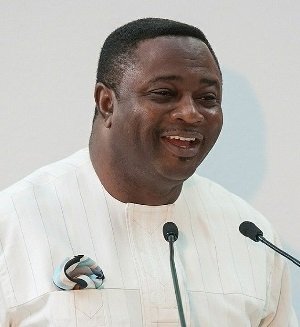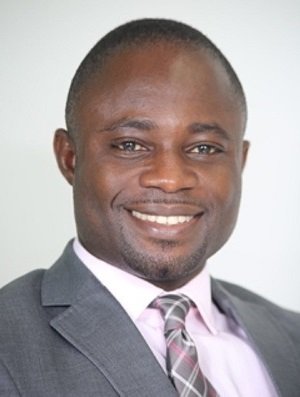Features
Ghana: When hypocrisy preaches ‘melodious honesty’

In a democracy, the authority of the government derives solely from the consent of the governed.
The principal mechanism for translating that consent into governmental authority is the holding of free and fair elections.
Indeed, elections are the central institutions of democratic representative governments. And all modern democracies hold elections, but not all elections are democratic.
According to Jeane Kirkpatrick, scholar and former United States Ambassador to the United Nations: “Democratic elections are not merely symbolic …
“They are competitive, periodic, inclusive; definitive elections in which the chief decision-makers in a government are selected by citizens who enjoy broad freedom to criticize government, to publish criticisms and to present alternatives.”
Democracies thrive on openness and accountability, with one very important exception; the act of voting itself.
To cast a free ballot and minimise the opportunity for intimidation, voters in a democracy must be permitted to cast their ballot in secret.
At the same time, the protection of the ballot box and tallying of the vote totals must be conducted as openly as possible, so that citizens are confident that the results are accurate and that the government does, indeed, rest upon their “consent”.
The fact of the matter is that, the practice of Ghana’s democracy is riddled with a lot of ‘election issues’. From internal party elections to inter-party elections or national general elections; there are a whole lot of issues.
And it is compounded by our District Level Elections and election of Metropolitan/Municipal and District Chief Executives, after their nominations by the President of the Republic.
For instance, some political analysts say with certainty that during the ‘primaries’ to select or elect presidential and parliamentary candidates to represent their various political parties in general elections, a lot of “underhand dealings happen.”
According to the analysts, the contesting candidates in the primaries, “flood the election venues with ‘pure cash and all manner of goodies’ including television sets, motorcycles, bicycles, sewing machines, wax prints, food and drinks to ‘grease the palms’ of the electorates, so that they could influence them to vote for them.”
The analysts contend that,”this is an open secret in Ghana’s internal party contests,” stressing that, “this is replicated by the political parties, all the way to the national elections.”
And for the election of Metropolitan, Municipal and District Executives (MMDCEs), other political watchers also claim that “the unspoken rituals” are known and performed by some nominated MMDCEs and their acolytes, irrespective of whichever political regime in power since the 4th Republic.
And the “rituals” are said to be turning the whole “confirmation process” into ‘moneycracy’ thus, influencing ‘the small-small honourables’ to vote in a certain way to confirm some of the MMDCEs.
And even in Parliament, some political watchers say, “some opaque rituals” are performed by some persons nominated for ministerial appointments during the vetting process, adding that “all these are presumably done to enhance the chances of the approval of some of the ministerial nominees by the Appointments Committee”; even though such activity is indirectly related to elections.

Mr. Elvis Afriyie
Ankrah, NDC’s Director
of Elections
•Mr Kwabena
Mintah Akandoh
Again, some political watchers claim that when some institutions are “pushing” or “lobbying” for Bills to be drafted and passed by Parliament to enhance their performance, such institutions are said to sponsor hotel bills, meals and transportation costs of the parliamentary committees discussing such Bills, insisting that “such acts by such institutions, together with Parliament, fly in the face of good governance practice and democracy,” even though it has no direct linkage to elections.
It is in line with such arguments that some critics have taken the Juaboso Member of Parliament, Mr Kwabena Mintah Akandoh, to the cleaners, about the statement he read on the floor of Parliament on Tuesday, November 2, 2021.
Mr Akandoh’s statement on the floor of Parliament demanded action from the House over the way some of the approvals of MMDCEs had been carried out in the midst of allegations of vote-buying among others.
Mr Akandoh mentioned the Juaboso District where a Presiding Member is currently challenging the approval of the DCE nominee in court, alleging that his confirmation was conducted on the blindside of some Assembly Members.
Mr Akandoh urged Parliament to probe “questionable election” of some of the MMDCE nominees, adding that, “at the core of our democratic practice is elections.
“The plethora of locations where such horrible examples occurred, included Suaman, Bebiani Ahwiaso, Bekwai and Sekyere Kumawu.”
He said, “as Members of Parliament, we have through democratic processes emerged as voices for countless thousands.
“For this reason, we must raise our voices against such acts,” and urged Parliament to institute a probe into areas where such schemes were reported to have taken place and to propose measures to rectify them.
According to the critics, however, Mr Akandoh and his cohorts in Parliament ” are acting ‘hypocrisy’ and preaching and singing ‘honesty’ with melodies.”
The critics contend that Mr Akandoh and his like-minded friends in Parliament are very much aware of the many of the “underhand election processes ” in the country, especially the performance of “monetary rituals” to influence voters at all levels of elections.
Readers, Wikipedia defines hypocrisy, as the practice of claiming to have higher standards or noble beliefs than is the case.
Hypocrisy is typically caused by an inflated sense of ego and self-righteousness, coupled with an inability to be humble.
Synonyms for hypocrisy include insincerity, pretence, deceit, falsity, duplicity and phariseeism.
The critics say, for Mr Akandoh to single out the election of MMDCEs for mention and attention on the floor of Parliament, while ignoring other related and very disturbing ‘election schemings ‘ in the country, smacks of hypocrisy and dishonesty.
The critics are, therefore, urging Mr Akandoh and “his friends” in Parliament to be candid and courageous to “open all the cans of election-related worms ” on the floor of Parliament for thorough scrutiny and redress; instead of using the election of MMDCEs as “an escape route.”
Per the recommendations of the critics, “the ball must be kicked, back into the court” of Mr Akandoh and his cohorts in Parliament.
Contact email/ WhatsApp of the author:
asmahfrankg@gmail.com (0505556179)
By G Frank Asmah
Features
Traditional values an option for anti-corruption drive — (Part 1)
One of the issues we have been grappling with as a nation is corruption, and it has had such a devastating effect on our national development. I have been convinced that until morality becomes the foundation upon which our governance system is built, we can never go forward as a nation.
Our traditional practices, which have shaped our cultural beliefs, have always espoused values that have kept us along the straight and the narrow and have preserved our societies since ancient times.
These are values that frown on negative habits like stealing, cheating, greediness, selfishness, etc. Our grandparents have told us stories of societies where stealing was regarded as so shameful that offenders, when caught, have on a number of instances committed suicide.
In fact, my mother told me of a story where a man who was living in the same village as her mother (my grandmother), after having been caught stealing a neighbour’s cockerel, out of shame committed suicide on a mango tree. Those were the days that shameful acts were an abomination.
Tegare worship, a traditional spiritual worship during which the spirit possesses the Tegare Priest and begins to reveal secrets, was one of the means by which the society upheld African values in the days of my grandmother and the early childhood days of my mother.
Those were the days when the fear of being killed by Tegare prevented people from engaging in anti-social vices. These days, people sleeping with other people’s wives are not uncommon.
These wrongful behaviour was not countenanced at all by Tegare. One was likely going to lose his life on days that Tegare operates, and so unhealthy habits like coveting your neighbour’s wife was a taboo.
Stealing of other people’s farm produce, for instance, could mean certain death or incapacitation of the whole or part of the body in the full glare of everybody. People realised that there were consequences for wrongdoing, and this went a long way to motivate the society to adhere to right values.
Imagine a President being sworn into office and whoever administers the oath says, “Please say this after me: I, Mr. …., do solemnly swear by God, the spirits of my ancestors and the spirits ruling in Ghana, that should I engage in corrupt acts, may I and my family become crippled, may madness become entrenched in my family, may incurable sicknesses and diseases be my portion and that of my family, both immediate and extended.”
Can you imagine a situation where a few weeks afterwards the President goes to engage in corrupt acts and we hear of his sudden demise or incapacitation and confessing that he engaged in corrupt acts before passing or before the incapacitation—and the effect it will have on his successor? I believe we have to critically examine this option to curb corruption.
My grandmother gave me an eyewitness account of one such encounter where a woman died instantly after the Tegare Priest had revealed a wrong attitude she had displayed during the performance on one of the days scheduled for Tegare spirit manifestation.
According to her story, the Priest, after he had been possessed by the spirit, declared that for what the woman had done, he would not forgive her and that he would kill. Instantly, according to my grandmother, the lady fell down suddenly and she died—just like what happened to Ananias and his wife Sapphira in Acts Chapter 5.
NB: ‘CHANGE KOTOKA INTERNATIONAL AIRPORT TO KOFI BAAKO
By Laud Kissi-Mensah
Join our WhatsApp Channel now!
https://whatsapp.com/channel/0029VbBElzjInlqHhl1aTU27
Features
Emotional distortions:A lethal threat to mental health
Emotional distortions can indeed have a profound impact on an individual’s mental health and well-being. These distortions can lead to a range of negative consequences, including anxiety, depression, and impaired relationships.
Emotional surgery is a therapeutic approach that aims to address and heal emotional wounds, traumas, and blockages. This approach recognises that emotional pain can have a profound impact on an individual’s quality of life and seeks to provide a comprehensive and compassionate approach to healing.
How emotional surgery can help
Emotional surgery can help individuals:
Identify and challenge negative thought patterns: By becoming aware of emotional distortions, individuals can learn to challenge and reframe negative thoughts.
Develop greater emotional resilience: Emotional surgery can help individuals develop the skills and strategies needed to manage their emotions and respond to challenging situations.
Improve relationships: By addressing emotional wounds and promoting emotional well-being, individuals can develop more positive and healthy relationships with others.
The benefits of emotional surgery
The benefits of emotional surgery can include:
Improved mental health outcomes: Emotional surgery can help individuals reduce symptoms of anxiety and depression.
Enhanced relationships: Emotional surgery can help individuals develop more positive and healthy relationships with others.
Increased self-awareness: Emotional surgery can help individuals develop a deeper understanding of themselves and their emotions.
A path towards healing
Emotional surgery offers a promising approach to addressing emotional distortions and promoting emotional well-being. By acknowledging the impact of emotional pain and seeking to provide a comprehensive and compassionate approach to healing, individuals can take the first step towards recovery and improved mental health.
Join our WhatsApp Channel now!
https://whatsapp.com/channel/0029VbBElzjInlqHhl1aTU27
BY ROBERT EKOW GRIMMOND-THOMPSON








